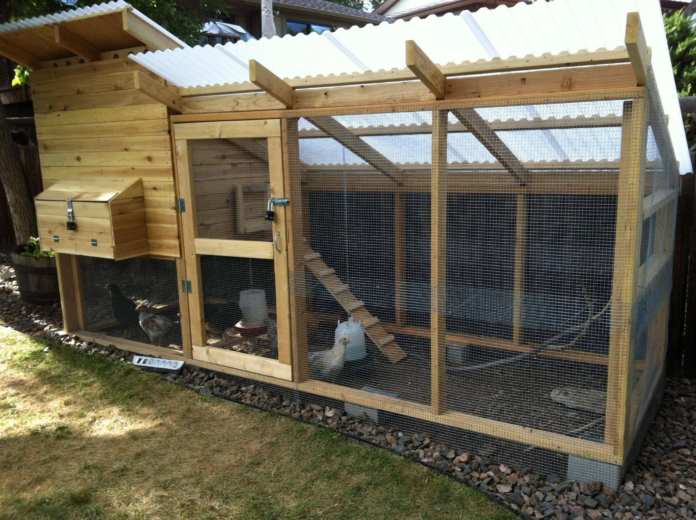Housing is necessary to protect chicken against predators, thieves, bad weather and to provide shelter for egg laying and broody hens. If you are keeping kienyeji chickens, you must get your kienyeji chicken housing right to ensure that your kienyeji poultry venture is anchored on the right structure. How do you do this? Well, let us take you through the steps:
Site selection;
- Location should be dry and flat.
- Poorly drained sites should be avoided or alternatively the house can be elevated from the ground.
- Select a secure site away from predators and thieves
- In rectangular houses the end walls should face an East-West direction
- Clear all grass and bushes for about 3 meters on all sides of the house to keep away rodents and reptiles.
- Ensure winds ventilate the house without causing draughts (cold).
- To protect against build-up of disease causing agents and parasites the house must be easily accessible and easy to clean.
- Poultry houses should have openings on either side for ventilation.
- A hole or ridge on the roof will ensure proper ventilation and give light
Building Materials;
- Use locally available material like timber, iron sheets, off-cuts and/or clay bricks.
- Remove all barks from wood to reduce the parasite load.
Floor
- Use slatted or raised floors to remove droppings and avoid predators.
- Remove any sharp edged objects from the floor to prevent possible injury
A concrete floor is recommended for easy cleaning and disinfection.
Litter
Litter should be provided on all deep litter floor systems and laying nests. Types of litter include:
- Wood shavings
- Shredded paper
- Hay
Lighting
- Mostly important for laying hens in controlling number and weight of eggs
- Light intensity should be such that a person can read a newspaper at the centre of the house
- In a crowded house, transparent roofing sheets should be fitted to improve lighting
- Excessive lighting may lead to cannibalism and other vices
Perches
- Perches are important for chicken to roost on at night and during daytime.
- They also reduce boredom, which can lead to vices like pecking and fighting.
- Each one-meter perch may roost five adult birds.
- Perches are best made from rounded sticks, which match the size of the birds’ feet.
Stopping chicken disease that is every poultry farmer’s worst nightmare
Laying nests
Laying nests ease egg collection and help avoid dirty and cracked eggs and should be provided at the onset of laying (18 weeks of age).
Avoid placing nests on the ground or outside the kienyeji chicken house as this will expose the eggs to predators and thieves.
- Remove eggs continuously from the nests to stop hens from going broody.
- Nests should be placed inside the chicken house and preferably above the ground.
There are two types of nests:
- Communal nests (more than one hen sharing)
- Individual nests where one hen lays at a time
- Provide one laying nest for every 5 hens
- The front is about 30cm high and the back 45cm high.
- To prevent egg eating, laying nests should be placed in dark areas of the house.
- Brooding nests are individual nests and should be placed in quiet and dark places where they are easily removed for cleaning.
- Once the hen is broody it may be necessary to move her to an isolated place to avoid other hens disturbing her or going broody as well.
Feeders and Drinkers
Feed troughs for your kienyeji poultry should be provided in the house. Naivasha chicken long feeders have proved suitable and economical. Round plastic or metal trough feeders are available and good but may lead to feed wastage.
- Feeders should be filled to about ½ to 2/3 full.
- Feed without restrictions
- Avoid feed wastage








